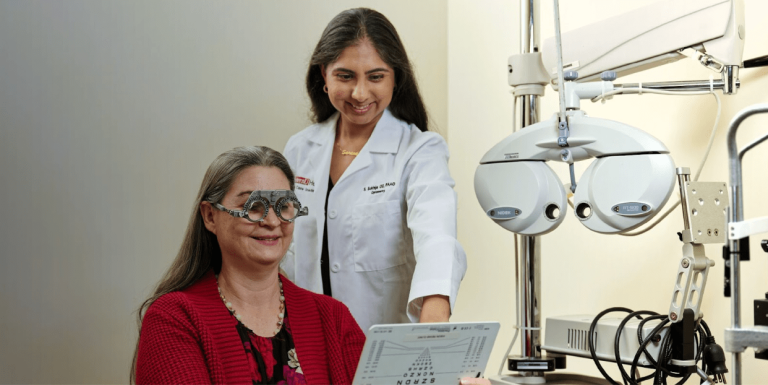
The integration of big data into medical device innovation is shifting the healthcare landscape. Complex datasets, derived from sources like electronic health records, medical imaging, genomic sequencing, and even wearable technology, offer unprecedented opportunities for transforming patient care. The importance of big data in the medical field is about more than the volume of data. It is about the insights and patterns that can be gleaned from it, driving innovations that are more efficient, personalized, and effective.
Arrigo Medical Devices is an international leader in providing healthcare equipment and supplies. Tracing the history of medical devices, from the stethoscope’s invention in the early 19th century to today’s AI-integrated diagnostic tools, leaders at Arrigo Medical Devices share unique perspectives on the medical field’s journey of constant evolution and improvement. The past few decades have witnessed a significant leap, largely fueled by advances in digital technology. By harnessing the power of large-scale data analysis, medical device manufacturers are now able to design solutions that are not only cutting-edge but also deeply attuned to the nuanced needs of patients and healthcare providers.
Understanding Big Data in Healthcare
In the healthcare context, big data refers to the immense volumes of information that are generated and collected from various sources within the medical field. This data is characterized not only by its volume but also by its variety, velocity, and veracity. It encompasses a wide range of data types, including structured data like electronic health records (EHRs) and unstructured data such as medical imaging, lab results, and physician’s notes. The scope of big data in healthcare extends beyond mere record-keeping to encompass complex layers of patient care, treatment methodologies, and health outcomes.
“The types of data integrated into this large-scale data pool are diverse,” says a leader at Arrigo Medical Devices. “Patient data, forming the core, includes detailed medical histories, treatment responses, genetic information, and lifestyle factors.”
Clinical trials contribute another significant chunk of data, offering insights into the efficacy and safety of new treatments and drugs. Research studies, both observational and experimental, add to this repository, providing a wealth of information on disease patterns, healthcare interventions, and long-term health trends. Furthermore, data from wearable health technologies and mobile health applications are rapidly becoming a substantial part of this ecosystem, providing real-time health monitoring data.
Managing Big Data
Collecting and managing this vast amount of data in healthcare settings involves sophisticated data management systems and advanced analytics tools. Electronic Health Record systems enable the aggregation and storage of patient data in a centralized and accessible manner. Data from clinical trials and research studies is often managed through specialized software platforms that support data collection, processing, and analysis. To handle the unstructured data, technologies like natural language processing (NLP) and machine learning are employed to extract meaningful information and patterns.
Notes a leader of Arrigo Medical Devices, “The management of big data in healthcare must adhere to stringent privacy and security protocols.”
Regulations such as HIPAA in the United States govern the handling of patient data, ensuring confidentiality and security. The integration of big data in healthcare is not just a technological challenge but also an exercise in maintaining trust and ethical standards in patient care. As healthcare systems continue to evolve, the efficient collection, management, and utilization of big data will remain a cornerstone of medical innovation and improved patient outcomes.

Impact of Big Data on Medical Device Design and Development
The advent of big data has significantly altered the landscape of medical device design and development. The influx of detailed and diverse datasets has provided a rich foundation for innovation as big data informs every stage of medical device creation. From conceptualization to deployment, big data offers deep insights into patient needs, disease patterns, and treatment outcomes.
At the heart of this transformation is the ability of big data to guide device designers in identifying unmet medical needs and patient-specific requirements. By analyzing extensive health records and patient data, developers can pinpoint gaps in existing medical technologies. This data-driven approach not only enhances the functionality and usability of devices but also ensures that they are tailored to address specific health conditions more effectively.
Examples of Big Data Use in Healthcare
A prime example of big data’s impact is seen in the development of advanced wearable devices for diabetes management. Continuous Glucose Monitors (CGMs), for instance, have evolved significantly through the analysis of extensive patient data.
Predictive analytics involves using advanced algorithms and machine learning techniques to analyze big data and predict trends, outcomes, or risks.
“In medical devices, this translates to improved diagnostic tools and more efficient therapeutic devices,” says an executive from Arrigo Medical Devices.
AI-powered diagnostic imaging tools use big data to enhance image analysis, enabling more accurate and early detection of diseases like cancer or neurological disorders. The algorithms are trained on vast datasets of medical images, allowing them to recognize patterns and anomalies that may be invisible to the human eye.
The integration of big data into medical device design and development has also opened avenues for the creation of smart, interconnected healthcare ecosystems. Devices are increasingly capable of not only collecting and analyzing patient data but also communicating with other devices and healthcare systems. This interconnectivity facilitates a more holistic approach to patient care, where decisions are informed by a comprehensive view of the patient’s health status.
The Continued Innovation of Big Data in the Medical Device Industry
The transformative role of big data in medical device innovation represents a paradigm shift in healthcare technology. By leveraging vast datasets, medical devices have become more personalized, predictive, and effective, addressing patient-specific needs with unprecedented precision. The responsible handling and application of big data are crucial in ensuring that the evolution of medical devices continues to enhance healthcare outcomes without compromising the trust and safety of patients.






